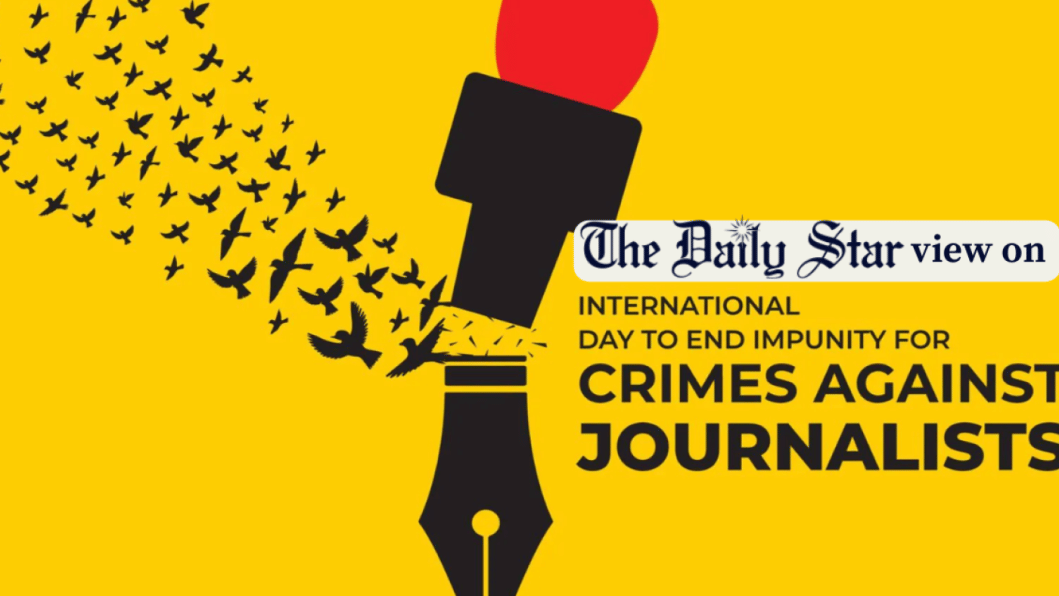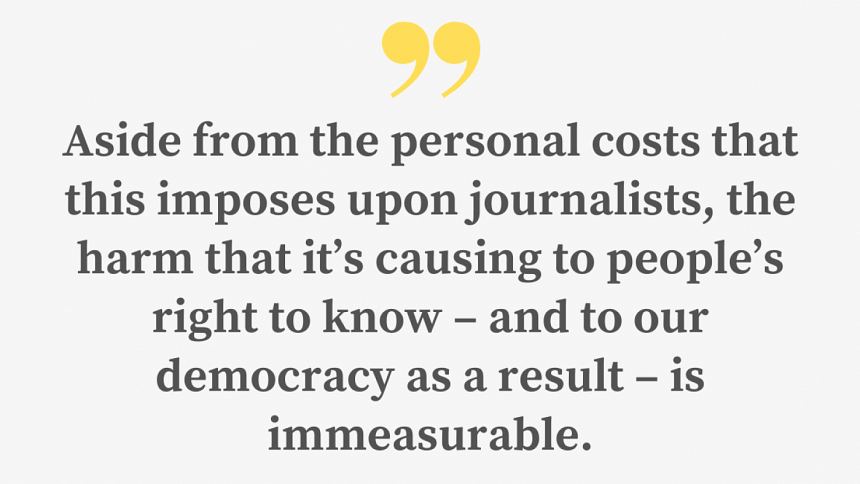End the environment of fear and intimidation

In the 18th century, Thomas Jefferson wrote to Edward Carrington that if he had to choose between "a government without newspapers or newspapers without a government," he would "not hesitate a moment to prefer the latter." The reason for that is that Jefferson believed the people to be the only censors of their governors, for which they must be given full information of their affairs by the free press. Today, as we mark the International Day to End Impunity for Crimes against Journalists, we shudder at the state of free expression in our country and, as an extension, media freedom, and government accountability.
There is no denying that the space for free expression in our country has been fast eroding over the years. In this year's World Press Freedom Index prepared by Reporters Without Borders (RSF), Bangladesh slipped 10 notches from the previous year and ranked 162nd among 180 countries. Moreover, Bangladesh was one of only 28 countries in the world which saw "very bad" press freedom violations this year. RSF also noted that journalists in Bangladesh are not only exposed to police violence, attacks by political activists, and murders orchestrated by Jihadist or criminal organisations, but such violence continually go unpunished, creating an environment where journalists have very little safety. And the perpetrators of such crimes have little to no disincentives for perpetrating such egregious crimes.
Since 1992, as many as 34 journalists and media workers have been killed in Bangladesh, according to the Committee to Protect Journalists (CPJ). Many of these murders have remain unsolved – the murders of journalist couple Sagar and Runi being the most sensational one – and the authorities in most cases have shown no urgency in getting that sorted out. Thus, the CPJ last year ranked Bangladesh 11th on its Global Impunity Index for countries with the most unsolved journalist murders. Aside from being outright murdered, journalists in Bangladesh are also being physically attacked, tortured, and sued just for reporting news. According to data of Ain o Salish Kendra, at least 119 journalists have been subjected to various attacks, lawsuits, and torture between January and July this year alone.
Ultimately, if forces with vested interests are able to silence independent journalism with violence, and face almost no consequences for doing so, what does it say about the state of press freedom in a country? Given that journalists in Bangladesh are already operating in ever more policed spaces, with the threat of the draconian Digital Security Act (DSA) hanging over their heads, such a state of affairs only adds to the environment of fear.

Aside from the personal costs that this imposes upon journalists, the harm that it's causing to people's right to know – and to our democracy as a result – is immeasurable. Therefore, we demand that the journalists who have been murdered in Bangladesh receive justice without any further delay, and we urge the government to create a safe and enabling environment for media workers in the country.

 For all latest news, follow The Daily Star's Google News channel.
For all latest news, follow The Daily Star's Google News channel. 









Comments